The six-month CAIC Producers Growth Program gives value-added producers and consumer packaged goods (CPG) entrepreneurs the knowledge, resources, and tools they need to scale their businesses. Through one-on-one mentorship, classes taught by subject matter experts, and hands-on assignments, you’ll develop and execute your scaling strategy.
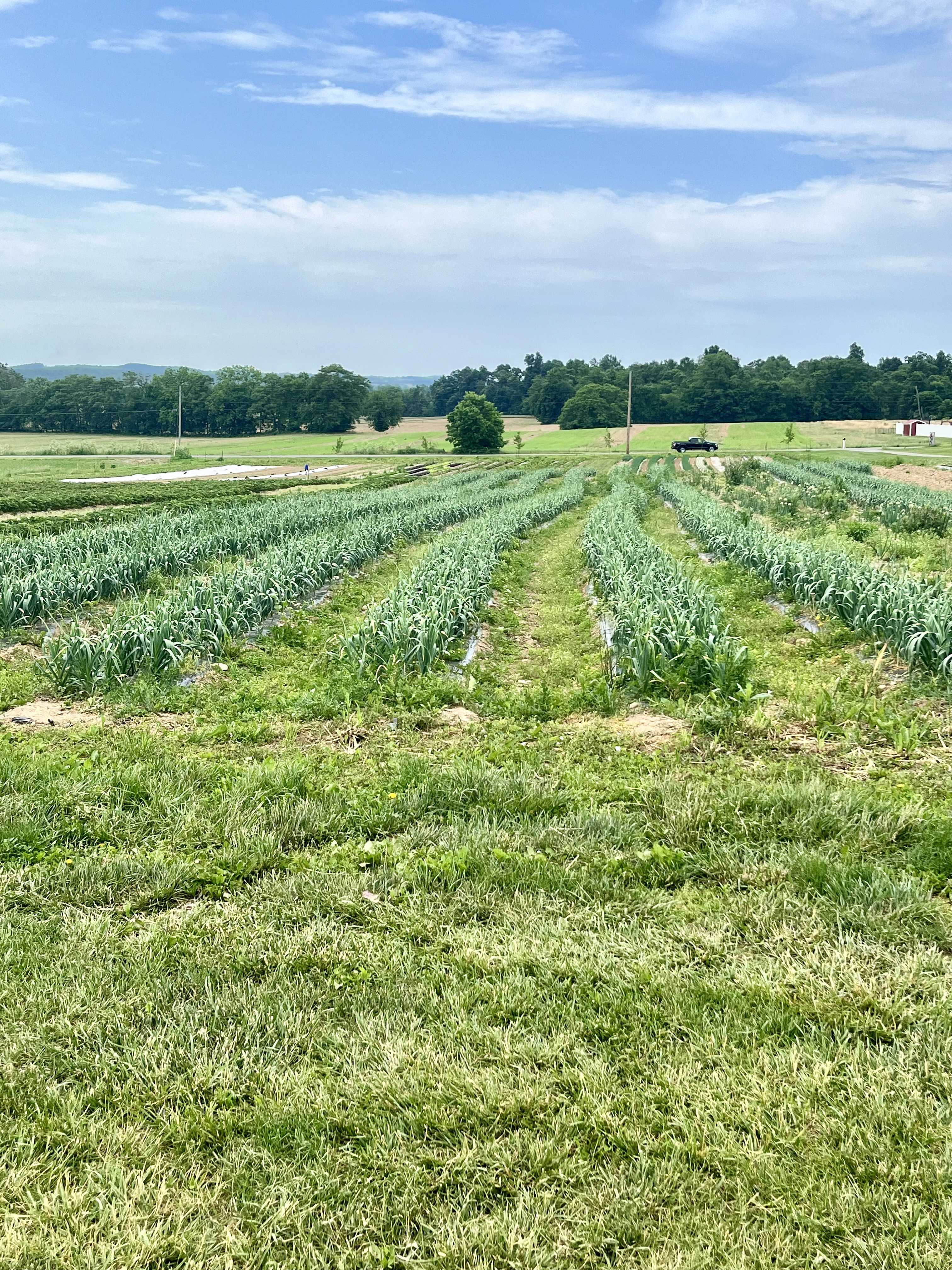
View below the draft schedule
Orientation Call
The first program orientation call will gave participants a chance to get to know their fellow cohort members, and to hear more about the work that they ’ll be doing to grow their businesses over the next six months. They’ll also find out their assigned mentors.
Class Session 1: What Is Scaling?
The first class session will cover scaling:
Participants will learn about the different stages of scaling, the process of securing investment, working with distributors, and more.
Homework: Discuss your basic thought process surrounding your company ’s growth.
Begin Weekly Consulting Calls with Mentors
Participants will have their first coaching call with their assigned mentors. These will continue for the duration of the program on either a weekly or biweekly basis, as determined by the participant and mentor.
Class Session 2: All-Encompassing Growth Plan
A crucial part of creating an all-encompassing plan for company growth is taking the time to understand market opportunities. It ’s not enough to simply create a product; producers need to know where they’re heading, so they can create a roadmap to get there. This session will give participants a look at the different elements their growth plans will need to have, including opportunities, marketing and financial goals, potential challenges, and more.
Homework: Flesh out your big hairy audacious goal (BHAG).
Class Session 3: Institutional and Wholesale Buyers
How can producers expand their sales to institutional and wholesale buyers, and which buyers are the right ones? This session will give a thorough overview of what’s required to work with institutional and wholesale customers—from pricing margins to branding strategy to negotiation (and more).
Topics will include.
Homework: What preparations do you need to make in order to successfully enter wholesale markets? Draft a plan.
Class Session 4: Market Size and Demographics
In the food business, it’s important to understand the demographics of your target market. But that isn’t the same thing as knowing your potential customers’ preferences. Lots of other factors can come into play (i.e., geography; customers in, for example, Boston and New York have different preferences), requiring producers to go deeper with their research. This session will offer participants additional insights into some of their need-to-know data.
Homework: Contact Brian Brown to get a demographics report, or do your own (top-down or bottom-up) research on demographics and market size.
Class Session 5: Understanding Financial Statements and Attracting Investors
Building and operating a successful business requires more than just a good idea. When it comes to strengthening their bottom line, producers need to know how to earn money, track finances, and attract investors. This session will cover:
Participants will be able to practice their elevator pitches, learn strategies for securing investors, and ask questions about effectively managing company finances.
Homework: Provide your mentor with a base balance sheet and cash flow analysis of your current position, as well as your growth plan.
Class Session 6: Risk Management
There are numerous roadblocks that producers can encounter as they work to build their companies. Food manufacturing, in particular, is far riskier today than it used to be due to stricter regulations, the residual impact of COVID-19, and an array of other factors. Thus, it’s important to know how to mitigate and minimize risk. During this session, participants will learn:
Homework: Identify risks within your plan, and develop some basic strategies for overcoming them.
Class Session 7: Supply Chain and Logistics
What does it take for producers to actually get their products to customers? This session will delve into the “where, how, and when” of supply chain and logistics. Topics covered include different types of distributors and wholesalers, the costs (i.e., labor and transportation) of storing and shipping products, potential challenges, and what’s involved in expanding your market to different regions. Participants will learn to map out their entire supply chain, and discuss strategies for expanding distribution.
Homework: Identify potential suppliers and pathways to the market.
Class Session 8: Legal Considerations
A crucial part of scaling a company is having an understanding of the legal and regulatory considerations involved, including their potential liabilities and risk exposure. During this session, participants will get an overview of the following:
Cohort members will also have the opportunity to share their current legal and regulatory questions and concerns, and will learn about additional legal resources available to them as they scale their companies.
Homework: What are some of the steps you’ll have to take to protect yourself and your company from liability?
Class Session 9: Outsourcing and Hiring
Building the right team is a critical component of the scaling process for any growing company. But how will you know when it’s time to start hiring, and when does it make sense to outsource? During this session, participants will hear from entrepreneurs about key practices for effective outsourcing and hiring. Topics include:
Homework: Use budget projections to determine if outsourcing will be required, as well as the capital needed to build external and internal teams.
Tour 1: Union Kitchen
During a guided tour of D.C.’s Union Kitchen, cohort members will learn more about the company’s shared and private kitchen space, as well as opportunities like the Union Kitchen Food Accelerator.
Presentation: 4P Foods (DATE TBD)
Participants will get to know the founders of 4P Foods, a D.C.-based “online farmers market.” 4P partners with farmers and producers in the region, distributing local products to households, on a wholesale basis to restaurants and other businesses, and to institutional partners. During this virtual presentation, cohort members will have the opportunity to learn more about potential ways that they can work with the company.
Mentor Work: Developing a Growth Plan
Participants will use what they’ve learned during the class sessions to begin developing and drafting their growth plans. They’ll also start preparing and developing a pitch deck for their upcoming presentation to a panel of business growth experts.
Mentor Work: First Draft of Growth Plan
At the start of the month, participants will continue practicing and preparing for their upcoming presentations. They’ll also do additional work on their growth plan, with the goal of having a first draft ready by the end of January.
In-Person Presentation of Growth Plans
Each producer will do an in-person presentation of their draft growth plan for a panel of business growth experts, who will provide them with feedback.
Tour 2: Tulkoff Food Products
Cohort members will take a guided tour of the Tulkoff Food Products co-packing facility in Baltimore. They’ll meet team members, and learn about the options the company offers for manufacturing, packaging, labeling, and more.
Mentor Work: Final Draft of Growth Plan
By the end of the month, each participant will aim to have a final draft of their growth plan ready.
Tour 3: Food Distribution Center
During their tour of a regional distribution center, participants will get a closer look at the company’s warehouse and distribution facilities.
Presentation of Growth Plan at Producers Unveiled
Each cohort member will get to showcase their products and share their growth plans at our end-of-program celebration and vendor fair, Producers Unveiled.
Post-Program
After the Producers Growth Program concludes, participants will become part of the growing alumni network. They’ll continue to have full access to the CAIC Resource Library, and will have annual check-ins with other cohort members and mentors, in addition to other events and services.
Here is what previous participants have shared about our program.
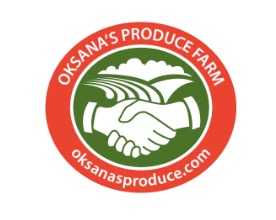
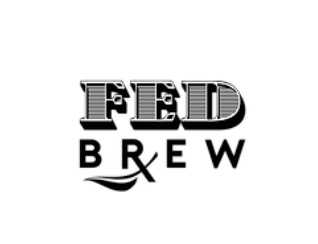
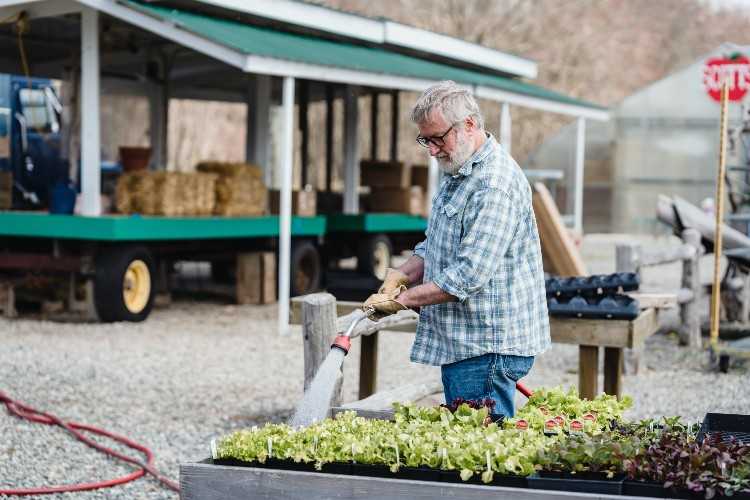
The Producers Growth Program is designed for value-added producers and consumer packaged goods (CPG) company owners in Delaware, Maryland, Virginia, and Washington, D.C. You must also meet the following criteria:
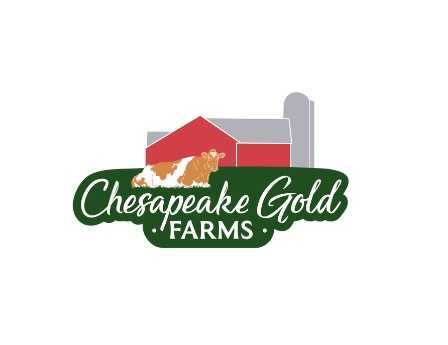
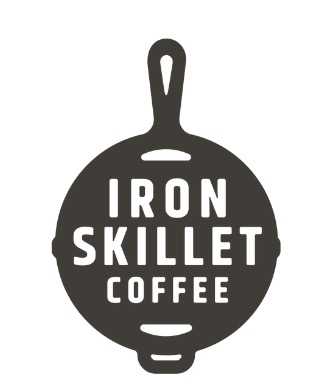
Each participant will be matched with an experienced advisor to guide and coach them. Our advisors include:

Areas of Expertise: Food
Distribution, Production, Sales
Jeff Landsman, the founder and partner of Specialty Food Sales, has been in the food business for more than 35 years. He has experience in food service and retail sales channels as a broker, manufacturer, importer, and distributor, where he has excelled as an innovator. Previously, Mr. Landsman was a vice president and general manager of Landsman Companies, a multi-location food processor, importer, and distributor of refrigerated and frozen fruits. He oversaw the company ’s New York facility, and managed activities in a co-owned factory in Nuevo Leon, Mexico. Mr. Landsman attended Rutgers University and the University of Maryland.

Areas of Expertise: IP,
Investment, Business Growth
Sam Zappas brings to CAIC a wealth of entrepreneurship experience, particularly in the areas of intellectual property, investment, and business growth. The founder of a number of media organizations and consumer companies, Mr. Zappas currently heads a consulting practice that focuses on revenue strategy. In addition, he serves on the boards of several non- profits and private companies, including the advisory boards of early-stage and late-stage companies.

Areas of Expertise: Business Operations, Financial Analysis, System Development
Brian Brown has been an economic development professional for 20 years, holding leadership roles in the areas of security, media, real estate, architecture, and engineering. Currently, he serves as the Chesapeake Agriculture Innovation Center’s program manager and lead business consultant. Mr. Brown is also the business development manager for the Southeast Rural Community Assistance Project (RCAP) Inc. Prior to that, he was the executive director of the Halifax Industrial Development Authority.
Along with their advisors, program participants will hear from other industry experts during regular guest lectures. Scheduled instructors include:


There are four easy steps in the Producers Growth Program application process:
Before you fill out the application, make sure you have these things:


During the six-month program, producers will be asked to commit to:
Though the time involved will be different for each individual producer, participants in the previous cohort, on average, estimated that they spent approximately five to six hours a week on program activities.

The Producers Growth Program will provide you with the knowledge and tools you need to assess, plan, and execute a growth and scaling strategy for your business. At the start of the six-month program, you’ll be matched with an industry advisor who has experience in building and leading successful companies, from attracting investors to expansion into new markets. During weekly coaching sessions, you’ll work together to develop a growth plan, using what you learn in your program classes. Your advisor can also connect you to new opportunities and help you avoid common scaling pitfalls, so you can use your resources wisely and sustain your company’s growth. As a participant in the program, you will also have preferred access to our partner’s $3.5 million loan fund.
As defined by the U.S. Department of Agriculture (USDA), a value-added producer must grow at least 51% of the raw commodity that they use to create their products, on land that they either lease or own. (Those who contract their production to another producer are not eligible.)
Subject matter experts will guide you through a comprehensive curriculum, covering topics including working with institutional and wholesale buyers, risk assessment and management, supply chain and logistics, and legal considerations, among others. After each class, you’ll work with your industry advisors to continue building your scaling strategy.
Along with their classes and weekly advisor sessions, participants will tour sites including a regional food accelerator, a co-packing facility, and a leading grocer’s warehouse. These are a great opportunity to meet and learn from the company owners, and to connect with fellow producers. Last year, participants visited D.C.’s Union Kitchen Accelerator and Baltimore-based co-packing facility Tulkoff Food Products, and met with representatives from Redner’s Market to discuss distribution. Each cohort member will also get to showcase their products and share their growth plans at our end-of-program celebration and vendor fair, Producers Unveiled.
We’re very proud of our inaugural Producers Growth Program cohort. Among the success stories is Gayle Galbraith, the founder of Federal Brewing Company, who was accepted to the Union Kitchen Accelerator. She also received $100,000 in funding to support her scaling plan. Participant Jeff Smith, the founder of Iron Skillet Coffee, was able to build a new coffee roasting facility in part due to CAIC support.
We’re excited to welcome value-added producers and consumer packaged goods (CPG) entrepreneurs headquartered in Delaware, Maryland, Virginia, or Washington, D.C. Eligible applicants should generate a minimum of $40,000 in annual revenue, be dedicated full time to their business, have a registered company in good standing, and demonstrate a commitment to business growth.
The application process is easy and straightforward, and it begins with filling out and submitting a brief form to check your eligibility. After that, you’ll receive an automated email with your eligibility status, along with a link to the application form. Here, you’ll be asked to provide basic information on your company, current goals, and motivations for participating in the program. You’ll also be asked to submit a business plan. Within the following two business days, you’ll get a calendar invite for your Zoom interview with the program advisors; during that interview, you’ll discuss your goals, motivations, business history, challenges, and more. The advisors will then determine whether or not you’re currently a good fit for the program, and will notify you of their decision within three business days.
Our goal is for you to have the knowledge and tools you need to assess, plan, and execute a growth and scaling strategy for your business at the end of the program. We also designed the program with the goal of helping you make valuable new connections. The eight-person cohort model allows for conversations with lecturers and other producers who are at similar business stages—people you can learn from and with whom you can build lasting professional relationships. You’ll also have access to our alumni network, including the opportunity to be paired with an alum working to scale their business in a similar field, allowing you to learn more about how they’re applying what they learned in the program.
Through the support of the U.S. Department of Agriculture, CAIC offers a tuition discount of almost 70% to value-added producers, for a reduced rate of $1,000 (including 63 hours of business growth services). Consumer packaged goods companies that don’t meet the value-added producer threshold (i.e., not growing 51% or more of their raw commodity) have the option of paying the full program fee ($4,000), which includes the 63 hours of business growth services; or of paying a reduced rate ($2,500), which doesn’t include these services.
We offer flexible, interest-free payment plans for all participants: you’ll choose the amount of your initial deposit, along with the payment schedule that’s right for you. Finally, CAIC won’t take equity in your company, ensuring you stay in control of it. During your interview with the program advisors, you’ll discuss the pricing and the payment model that fits best.
Mini-Grants up to $5,000 are available for:
– Market Research and Validation of Target Market
– Customer Acquisition
– Product Development Initiatives
– Food Safety Classes
Eligibility
Value-added producers and companies with traction ($20,000 or more in yearly revenue) in Maryland and Delaware are eligible to apply for Mini-Grants. Participants may apply once for each of the categories. Applicants must demonstrate that they have a unique and differentiated product or service that incorporates an aspect of innovation or technology in its production, processing, distribution, or other element of the food supply system.
Applications are accepted on a rolling basis. Award decisions will be made and funds will be available no later than three weeks following the receipt of a completed application.
Application Process
Applicants must submit Mini-Grant proposals by filling out the form at this link. Copy(ies) of quote(s), proposal(s), estimate(s), or any other supporting documents.
CAIC offers access to Subject Matter Experts (SMEs) who can offer authoritative advice based on their deep knowledge and experience in a specific area. See the ADVISORS page of this Web site to learn more about the SMEs who are available to CAIC participants.